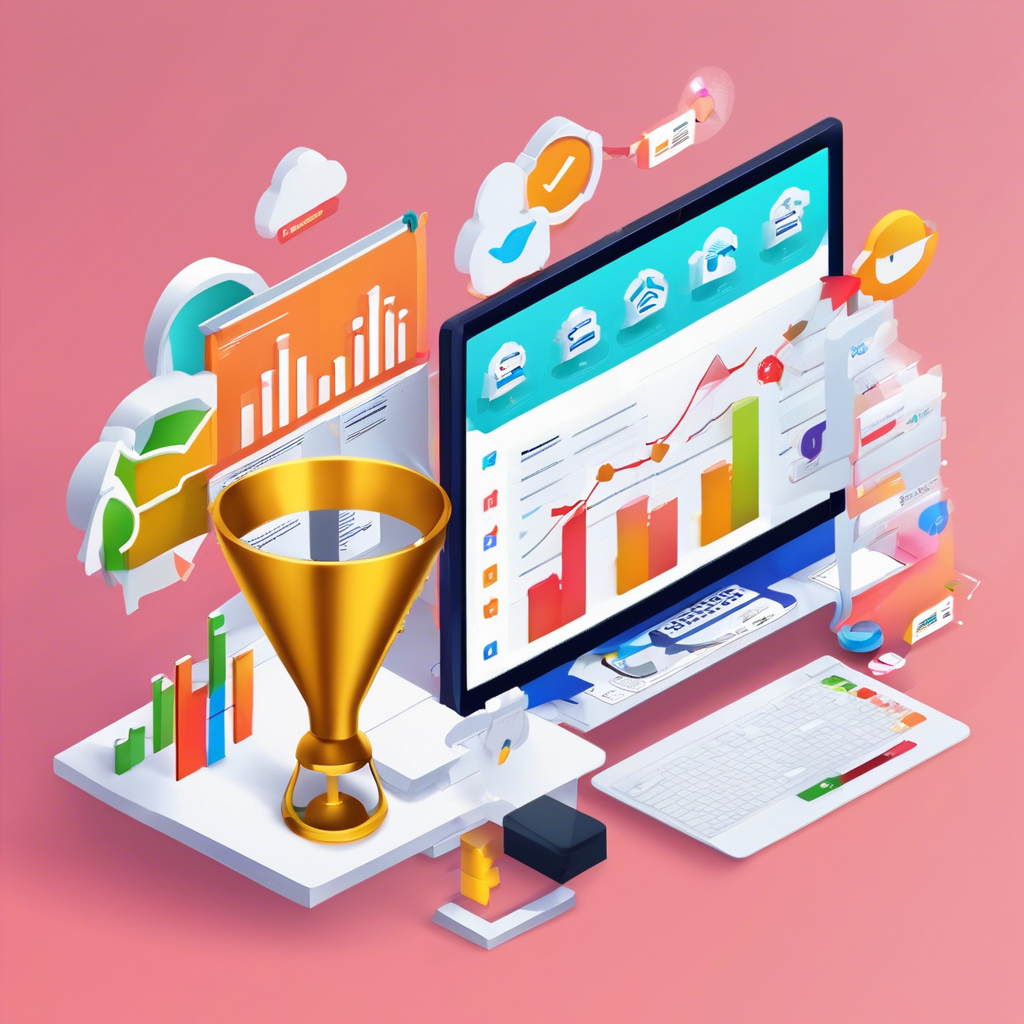Sales funnel software is an essential tool for businesses looking to streamline their sales processes and increase conversions. In today’s digital age, having an effective sales funnel in place can make all the difference in turning leads into customers. With the right software, businesses can track customer interactions, automate follow-ups, and analyze data to improve their sales strategies.
One of the key benefits of using sales funnel software is its ability to track and manage leads effectively. By capturing lead information and organizing it in a centralized system, businesses can easily prioritize leads and tailor their sales approach based on individual needs. This targeted approach can lead to higher conversion rates and ultimately, increased revenue.
Another advantage of sales funnel software is its automation capabilities. With features like email automation, businesses can set up personalized email sequences to nurture leads and move them through the sales funnel. This not only saves time and resources but also ensures consistent communication with potential customers.
In addition to lead tracking and automation, sales funnel software also provides valuable insights through data analysis. By tracking key metrics such as conversion rates, customer engagement, and ROI, businesses can identify areas for improvement and optimize their sales funnel for better results. This data-driven approach allows businesses to make informed decisions and continuously refine their sales strategies.
Furthermore, sales funnel software can help businesses streamline their sales processes by providing a clear roadmap for guiding leads from awareness to purchase. By visualizing the sales funnel stages and identifying potential bottlenecks, businesses can address any issues that may be hindering the conversion process and make necessary adjustments to improve efficiency.
Moreover, sales funnel software offers integration capabilities with other tools and platforms, allowing businesses to create a seamless sales ecosystem. From CRM systems to email marketing platforms, integration ensures that all customer data is synced across different channels, providing a unified view of the customer journey and enabling personalized interactions.
Additionally, sales funnel software can help businesses track the effectiveness of their marketing campaigns and allocate resources more efficiently. By analyzing which campaigns are driving the most conversions and where leads are dropping off, businesses can optimize their marketing efforts for maximum impact and ROI.
Furthermore, sales funnel software enables businesses to create targeted landing pages and sales funnels tailored to specific customer segments. By personalizing the customer experience and addressing their unique pain points, businesses can increase engagement and build stronger relationships with their audience.
Moreover, sales funnel software can help businesses identify and capitalize on cross-selling and upselling opportunities. By analyzing customer behavior and purchase history, businesses can recommend relevant products or services to existing customers, increasing their lifetime value and driving additional revenue.
Additionally, sales funnel software allows businesses to track customer interactions across multiple touchpoints, providing a comprehensive view of the customer journey. By understanding how customers engage with their brand at each stage of the sales funnel, businesses can tailor their messaging and offers to meet customer needs and preferences.
Furthermore, sales funnel software enables businesses to set up lead scoring criteria to prioritize leads based on their likelihood to convert. By assigning scores to leads based on their actions and engagement levels, businesses can focus their efforts on high-quality leads that are more likely to result in a sale.
Moreover, sales funnel software offers customizable reporting and analytics tools to track KPIs and measure the success of sales campaigns. By monitoring key metrics such as conversion rates, revenue generated, and customer acquisition costs, businesses can gauge the effectiveness of their sales funnel and make data-driven decisions to drive growth.
Additionally, sales funnel software can help businesses improve collaboration and communication among sales and marketing teams. By providing a centralized platform for sharing lead information, tracking progress, and coordinating efforts, businesses can ensure alignment and consistency across departments for a more cohesive sales strategy.
Furthermore, sales funnel software can assist businesses in identifying and segmenting their target audience for more personalized marketing campaigns. By analyzing customer data and behavior patterns, businesses can create targeted messaging and offers that resonate with specific customer segments, leading to higher engagement and conversions.
Moreover, sales funnel software enables businesses to A/B test different elements of their sales funnel, such as email subject lines, calls to action, and landing page designs. By experimenting with different variations and measuring the results, businesses can optimize their sales funnel for maximum effectiveness and conversion rates.
Additionally, sales funnel software offers scalability for businesses of all sizes, allowing them to adapt and grow their sales processes as their business expands. Whether a small startup or a large enterprise, sales funnel software can accommodate varying needs and requirements to support business growth and success.
In conclusion, sales funnel software plays a crucial role in helping businesses streamline their sales processes, increase conversions, and drive revenue growth. By leveraging the benefits of lead tracking, automation, data analysis, and customization, businesses can create a more efficient and effective sales funnel that delivers results. With the right sales funnel software in place, businesses can optimize their sales strategies, improve customer interactions, and ultimately, achieve their sales goals.

